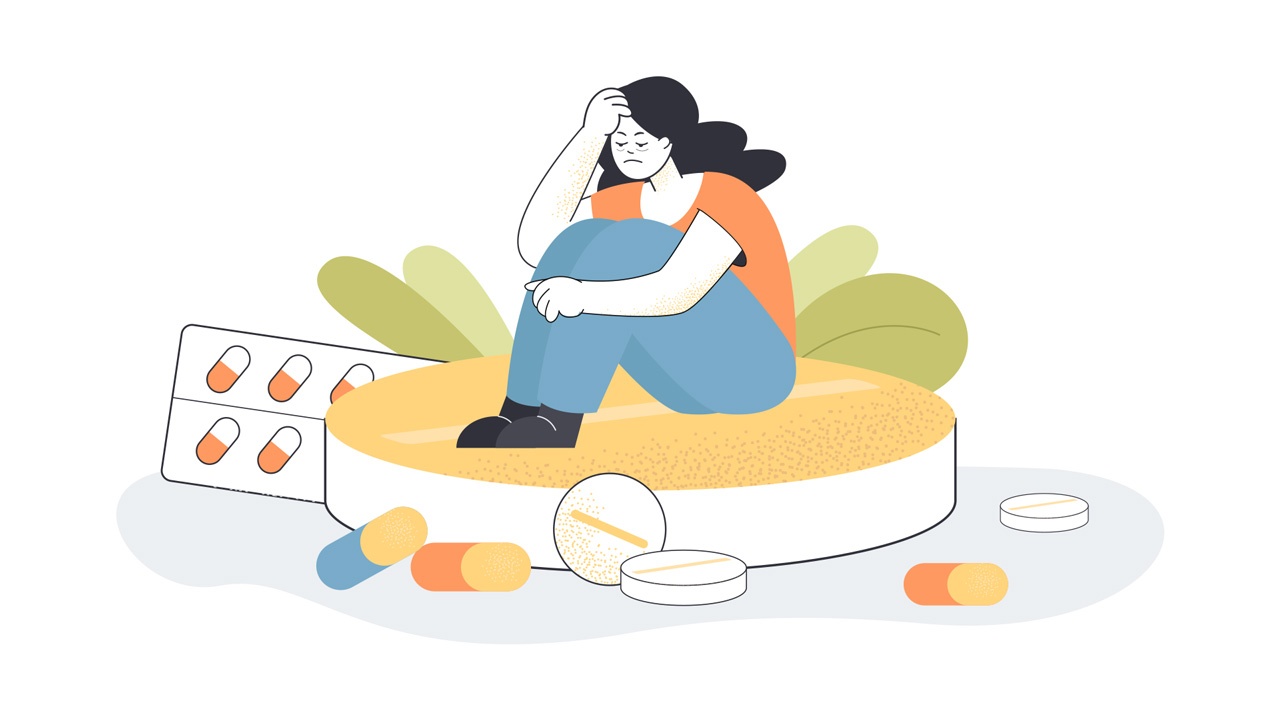Most of us have likely heard the saying “words can kill”, which is often interpreted as a call to be more compassionate and considerate, and to avoid hurting others with harsh words. However, it’s important to acknowledge that negative words and thoughts can actually have a detrimental effect on a person’s well-being, potentially even leading to serious health issues. In the field of medicine, this phenomenon is referred to as the “nocebo effect”.
What is the nocebo effect?
The concept of the nocebo effect was first introduced by physician Uroter Kennedy in 1961, when he published an article titled “The Nocebo Reaction.” At the time, experiments were being conducted on the use of placebos. Kennedy noticed that a person’s reaction to a medication depended more on the patient’s expectations: if they were negative, then their condition would worsen. Dr. Kennedy coined the term “nocebo,” which in Latin means “I will harm.”
Thus, if a patient takes a pill knowing that it will harm them, or agrees to a medical procedure that they do not trust, their fears are justified. And this is despite the fact that official medicine has proven that the medication or procedure is absolutely safe. This effect can be quite dangerous. If an authoritative doctor or another person whom the patient trusts tells them that their days are numbered, they may actually die, even if the diagnosis is not later confirmed.
People who are prone to anxiety, suggestibility, and paranoia are most often affected by the nocebo effect, and there are many women among them. Friends or relatives of the patient who reinforce their fears with scary stories can also make matters worse. Our thoughts can both heal and harm: expecting a bad outcome can turn a healthy person into a sick one. Therefore, in many clinics, it is now forbidden to tell patients that the procedure they are preparing for is painful, carries a high risk of complications, or has a high likelihood of side effects. If a person is convinced that the outcome of the disease will be unfavorable, it will last longer and be more complicated.
Real-life cases and experiments confirming its existence
In 2012, Dr. Winfried Hauser and Professor Ernil Hansen conducted a study on the nocebo effect. They went to the Medline medical library and studied all the articles about this phenomenon. They found 151 publications, some of which were interesting cases.
For the experiment, they selected 50 patients with back pain and divided them into two groups, after which they conducted a leg bending test. One group was told that the test would increase their pain, while the other was warned that it would not affect their condition in any way. At the end, all were asked to rate their pain on a 101-point scale. If the intensity of pain in the first group was around 48, then in the second, patients rated it at only 30 points.
This happened in 2007. A guy who was 26 at the time had a fight with his girlfriend and decided to commit suicide by drinking antidepressants, 29 pills. Soon his blood pressure dropped, and his heartbeat increased. In the hospital, they tried to provide first aid, but it turned out that there were no drugs in his blood. The guy participated in a medical experiment, and all the pills were placebos that could not cause any harm. Learning the truth, the young man felt better, his pulse and blood pressure returned to normal.
In 2008, a US pediatrician, Nina Pierpont, stated that wind turbines located near residential areas could affect people’s well-being, causing dizziness, ringing in the ears, migraines, panic attacks, and heart disease. After this statement, many residents of Ireland, the UK, the US, Italy, and Canada found these symptoms in themselves. When the scientific community was able to prove that “wind turbine syndrome” did not exist, everyone immediately recovered.
Sam Shumane’s story, which took place in the 1970s, also stuck in memory. He was given a bleak diagnosis of liver cancer, and the doctor said he would die in a month. It happened that way, and the man was buried a few months later. However, an autopsy showed that the diagnosis was false; the tumor was indeed tiny and could not have led to the patient’s death.
In 1998, many media outlets wrote about how dangerous the tetanus vaccine was. In Jordan, after mass vaccination, 800 teenagers felt an unusual side effect: their hands and feet did not listen to them, they could not stand or move. Doctors examined the vaccine and found that it was fine; such a reaction should not have occurred. The cause of the symptoms was self-suggestion.
Knowing about the nocebo effect can protect yourself and loved ones from many problems. Of course, it’s easy to say, “Don’t worry, everything will be okay.” But it doesn’t work that way; if a person is sick, he will worry about his health. The most optimal option is to double-check any information. Whatever the doctor says, whatever you read in an article, before panicking, it’s worth seeing several specialists and reviewing various sources. You don’t need to read about the side effects of drugs, especially if you need to take them. If they appear, you should tell the doctor, and he will choose another drug. Otherwise, due to the nocebo effect, you may soon find all the listed symptoms in yourself. And, of course, you shouldn’t tune in to a sad and negative outcome.



